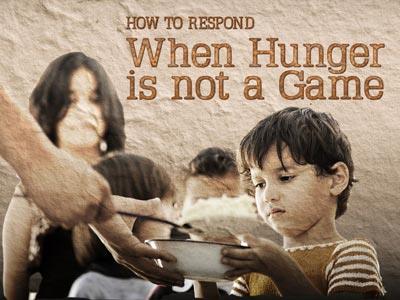-
Keys To A Satisfied Life
Contributed by Martin Wiles on Nov 28, 2017 (message contributor)
Summary: True satisfaction comes from a deep and abiding hunger and thirst for the things of God.
Keys to a Satisfied Life
Matthew 5:6
INTRODUCTION
For untold years, hunger and starvation have been a chronic problem for many people in various countries. In 436 B. C., famine came to Rome and caused thousands of people to throw themselves into the Tiber River to end their lives. In 1005, famine struck England. In 879, 1016, and 1162, all of Europe suffered from famine. Even in our century with all of its technological advances, hunger still stalks our world. There are many in our own country, as developed and prosperous as we are, who still go to bed hungry on a regular basis. The homeless still wander the streets of many of our cities.
During the liberation of Palestine during World War I, a combined force of British, Australian and New Zealand soldiers pursued the Turks as they fled from the desert. As the allied troops continued northward, they began to outdistance their camel train with the water. As the water ran out, their mouths became dry, they got dizzy and their heads ached. Their eyes became bloodshot, their lips swelled and mirages became common. If they did not make the wells of Sheriah by nightfall, thousands of them would die. Fighting for their lives, they succeeded in driving the Turks from Sheriah. As the water was distributed from great stone cisterns, the able-bodied were required to stand while the wounded and those who would stand guard duty drank first. It was four hours before all had a drink of water. During this time, some of the men stood no more than twenty feet from thousands of gallons of water while the wounded and those who would stand guard drank first. What a thirst they must have had.
Yet this hunger and thirst that has and still afflicts so many pales in comparison with a more serious hunger and thirst that everyone has whether or not they recognize it. In fact, one officer who was present at Sheriah at this great drinking scene said, “I believe that we all learned our first real Bible lesson on the march from Beersheba to Sheriah Wells.” And another says, “If such were our thirst for God, for righteousness and for His will in our lives, a consuming, all-embracing, preoccupying desire, how rich in the fruit of the Spirit would we be.”
And so we continue on the road to happiness as Jesus defines it in the Beatitudes. Thus far we have learned that God blesses or makes happy those who are poor in spirit and recognize their need for him. He blesses or makes happy those who mourn over their sin, the sins of others and sin in the world. He makes happy those who are meek or gentle in spirit-those who are quiet, submissive and tenderhearted. Those who have mastered their wills so that their power is under control and they have no more selfish aims or desires for justice and revenge.
To the above we add the fourth Beatitude, which strikes a positive note and gives a conclusion to the first three. When we are willing to put aside our selfish pursuits, sins and self-centered power, then we will naturally have a hunger and thirst for the righteousness of Christ. If we put aside all these things we will have to put something back on.
There are many wrong things that we can hunger and thirst after, such as praise from others, power, selfish and immoral pleasures, but unless we hunger and thirst after the things of God we cannot truly be happy. Such an enduring happiness comes only when we are clothed in his righteousness.
WE MUST SEE THE TRUE MEANING OF HUNGER
The hunger and thirst that Jesus speaks of is an intense hunger and thirst that most of us have probably never experienced. It is the kind of hunger and thirst such as those in famine lands experience. Not only is the hunger and thirst to be intense but it is also to be a continual longing and seeking for our lives be holy like Christ’s. If we are truly his children, we will have this intense desire. In addition, we will earnestly do whatever it takes to make his holiness a part of our life.
Many Christians would fall short if we would compare the way we normally hunger and thirst for the things of God with the kind of hunger and thirst Jesus speaks of. Studies show that we often have a weak desire for righteousness. We often get mixed up in the things of the world, and we know that to hunger and thirst for Jesus’ righteousness would mean we would have to change our plans or our lifestyle. Jesus expects his children to have a strong desire or passion to live as he commands.

 Sermon Central
Sermon Central



